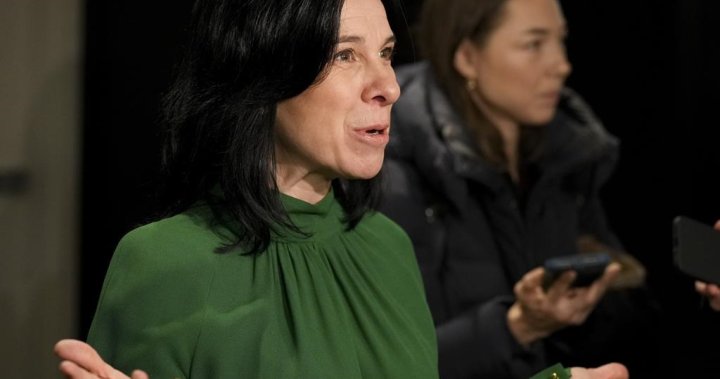Montreal Mayor Valérie Plante has come under fire for her decision to restrict access to her social media accounts as a way to curb online hate. Aref Salem, leader of the city’s official opposition, believes that this decision limits the freedom of expression for Montrealers. He argues that social media is a vital way for citizens to interact with Plante and voice their concerns, as it allows for a more immediate and direct form of communication compared to traditional methods like city council meetings. Salem believes that blocking comments on social media platforms goes against the principles of democracy and limits the population’s ability to interact with the mayor.
Currently, Plante’s accounts only allow comments from people or organizations mentioned in the posts, and comments on her Instagram posts are also limited. The decision to restrict comments was made to prevent discriminatory, violent, racist, harassing, hateful, homophobic, disrespectful, sexist, and defamatory comments from being made on social media. A spokesperson for Plante stated that while her digital platforms are meant for discussion, it is important that the exchanges remain respectful. However, Salem believes that elected officials have an obligation to engage with their constituents and should address online harassment on a case-by-case basis rather than implementing a blanket prohibition on comments.
Anaïs Bussières McNicoll from the Canadian Civil Liberties Association also believes that a blanket prohibition on comments is an unreasonable limitation of people’s freedom of expression. Elected officials should evaluate inappropriate comments on a case-by-case basis instead of restricting all comments. In June, the Quebec government passed a law that allows for fines of up to $1,500 for anyone who intimidates or harasses a politician. Plante is not the only politician to block comments on social media accounts, as federal MPs from various parties have also implemented similar measures.
There has been considerable public debate about whether politicians have the right to block individual accounts on social media platforms, thereby preventing users from seeing their posts altogether. In the past, there have been legal challenges to such actions, with cases like the one involving former Ottawa mayor Jim Watson, who was sued for infringing on the constitutional right to freedom of expression when he blocked residents from his Twitter feed. In the United States, the Supreme Court ruled that government officials who block critics on social media may be sued for violating the First Amendment. The issue of restricting comments on social media accounts has sparked discussions around the balance between freedom of expression and combating online hate.
Overall, the decision by Montreal Mayor Valérie Plante to restrict access to her social media accounts has sparked criticism from opposition leaders and civil liberties organizations. While the intention behind the decision is to prevent online hate and discrimination, critics argue that it limits the ability of Montrealers to interact with their mayor and express their opinions. The debate around this issue reflects broader conversations about freedom of expression, the responsibilities of elected officials, and the challenges of navigating social media in the public sphere. As governments and politicians grapple with how to address online harassment and hate speech, finding a balance between protecting freedom of expression and combating harmful online behaviors remains a complex and evolving challenge in the digital age.













